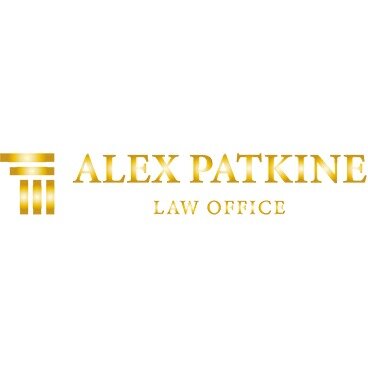Best Banking & Finance Lawyers in Israel
Share your needs with us, get contacted by law firms.
Free. Takes 2 min.
Or refine your search by selecting a city:
List of the best lawyers in Israel
About Banking & Finance Law in Israel
Banking and finance law in Israel is a dynamic and well-regulated sector that is crucial to the country's economy. Governed by a mixture of statutes, case law, and regulatory guidelines, this field covers financial transactions, banking services, capital markets, lending, securitization, and more. Israel's legal framework aims to ensure financial stability, protect consumer rights, and maintain the integrity of its financial system. The Israeli financial market is characterized by a robust banking industry, active capital markets, and growing fintech innovation.
Why You May Need a Lawyer
Individuals and businesses may require legal support in several areas of banking and finance, such as:
- Negotiating and drafting loan agreements or financial products
- Navigating regulatory compliance and licensing requirements
- Managing disputes with banks or financial institutions
- Understanding investment agreements and portfolio management
- Handling insolvency, bankruptcy, and financial restructuring
- Resolving issues related to secured transactions and collateral
A lawyer specializing in banking and finance can help you navigate these complex situations and protect your financial interests.
Local Laws Overview
Key aspects of banking and finance law in Israel include:
- The Banking (Service to Customer) Law, which regulates interactions between banks and customers, emphasizing transparency and fairness.
- Bank of Israel laws, guiding the functions and powers of the central bank, including monetary policy and financial stability.
- The Regulation of Investment Advice, Investment Marketing and Portfolio Management Law, aiming to protect investors through strict licensing requirements and conduct standards.
- The Control of Financial Services (Insurance) Law and its amendments, guiding insurance and pension fund operations.
- The Companies Law, impacting corporate governance and financial reporting for businesses involved in funding or investments.
Understanding these laws helps individuals and businesses operate compliantly and make informed financial decisions in Israel.
Frequently Asked Questions
What is the main regulatory body for banks in Israel?
The Bank of Israel is the main regulatory body, responsible for supervising banks and ensuring financial stability.
Do I need a special license to provide financial advisory services?
Yes, providing financial advisory services in Israel requires a license, which involves meeting certain qualifications and standards.
How are consumer rights protected in banking services?
Consumer rights are protected under the Banking (Service to Customer) Law, ensuring fair treatment and transparency from banks.
What should I consider when taking out a mortgage in Israel?
Consider factors like interest rates, payment terms, and any associated fees. It’s advisable to seek legal advice to fully understand all terms.
Is peer-to-peer lending regulated in Israel?
Yes, peer-to-peer lending is regulated to ensure fair practices and protect both lenders and borrowers.
How can I resolve a financial dispute with a bank?
Start by communicating directly with the bank. If unresolved, consider seeking legal advice or contacting the Banking Ombudsman.
What laws govern digital currencies in Israel?
Digital currencies aren't yet fully regulated but are monitored by the Israel Securities Authority and Bank of Israel for compliance and security.
Can foreign investors freely invest in Israeli financial markets?
Foreign investors generally enjoy open investment options, though certain restrictions and reporting requirements may apply.
What is required to open a bank account in Israel?
Typically, personal identification, proof of residence, and sometimes employment documentation are required for account opening.
Are Islamic banking services available in Israel?
Islamic banking is not widely available in Israel, though some financial products may comply with Sharia principles through specialized arrangements.
Additional Resources
For further information or assistance, consider reaching out to the following resources:
- Bank of Israel: Offers guidelines, reports, and regulatory updates on the banking sector.
- Israel Securities Authority: Provides information about securities and market regulation.
- Banking Ombudsman: Assists in resolving disputes between customers and banks.
- The Ministry of Finance: Offers economic insights and regulatory information
Next Steps
If you require legal assistance in banking and finance, consider the following steps:
- Research and identify lawyers or law firms specializing in banking and finance in Israel.
- Prepare a summary of your financial issues and relevant documents before meeting with a lawyer.
- Schedule a consultation to discuss your needs, understand the legal landscape, and evaluate potential legal strategies.
- Consider multiple consultations to find a legal professional who best suits your needs.
Taking these proactive steps can help ensure you receive informed and effective legal guidance to navigate the complexities of banking and finance in Israel.
Lawzana helps you find the best lawyers and law firms in Israel through a curated and pre-screened list of qualified legal professionals. Our platform offers rankings and detailed profiles of attorneys and law firms, allowing you to compare based on practice areas, including Banking & Finance, experience, and client feedback.
Each profile includes a description of the firm's areas of practice, client reviews, team members and partners, year of establishment, spoken languages, office locations, contact information, social media presence, and any published articles or resources. Most firms on our platform speak English and are experienced in both local and international legal matters.
Get a quote from top-rated law firms in Israel — quickly, securely, and without unnecessary hassle.
Disclaimer:
The information provided on this page is for general informational purposes only and does not constitute legal advice. While we strive to ensure the accuracy and relevance of the content, legal information may change over time, and interpretations of the law can vary. You should always consult with a qualified legal professional for advice specific to your situation.
We disclaim all liability for actions taken or not taken based on the content of this page. If you believe any information is incorrect or outdated, please contact us, and we will review and update it where appropriate.
Browse banking & finance law firms by service in Israel
Israel Attorneys in related practice areas.
Browse banking & finance law firms by city in Israel
Refine your search by selecting a city.
















